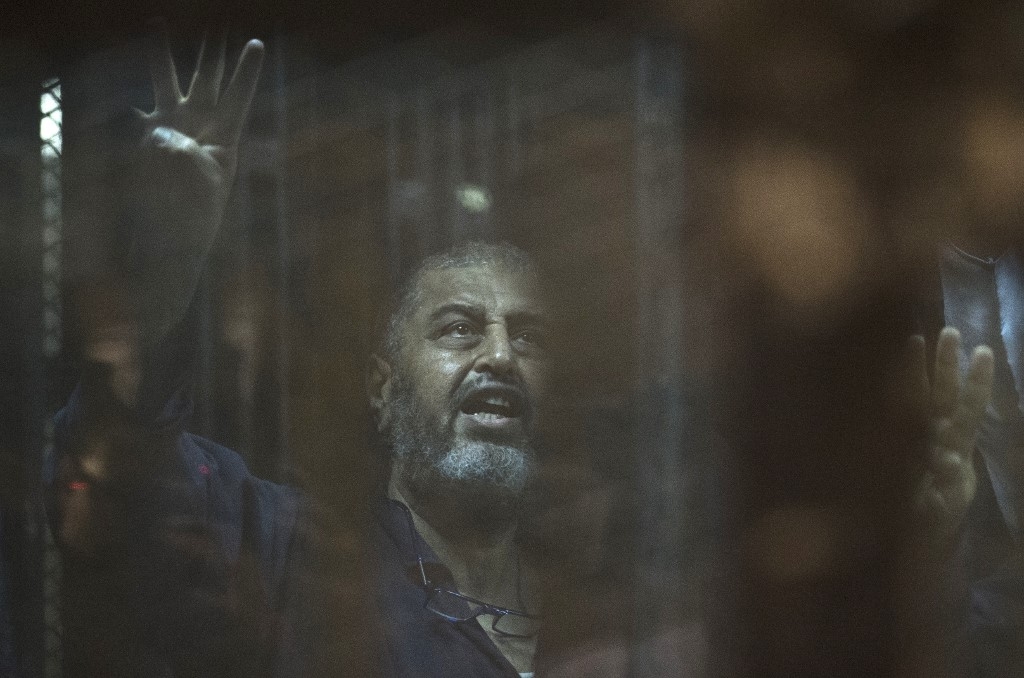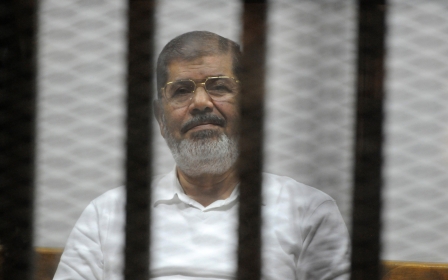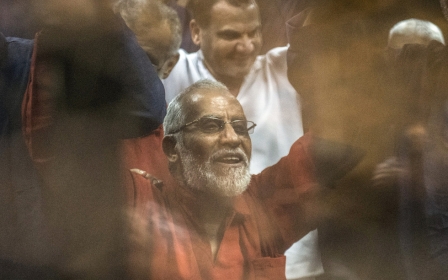Egypt: Muslim Brotherhood leader Khairat el-Shater denies spying charges in rare court statement

A senior figure in Egypt's Muslim Brotherhood has denied charges of spying for Hamas in his first statement to a court since being arrested in 2013 in the aftermath of the coup that removed president Mohamed Morsi.
Speaking to the court on Tuesday, Khairat el-Shater, the Brotherhood's deputy supreme guide, denied the spying charge, according to the Arabi21 website.
El-Shater and other Brotherhood leaders are accused of spying for the Palestinian organisation which controls Gaza, from 2006 until the 2011 revolution that removed Hosni Mubarak from office.
Morsi was also on trial prior to his death after collapsing in court last month
Addressing the judge, El-Shater said the charges levelled against he and his co-defendants are fabricated and false.
New MEE newsletter: Jerusalem Dispatch
Sign up to get the latest insights and analysis on Israel-Palestine, alongside Turkey Unpacked and other MEE newsletters
In his defence, el-Shater asked why senior intelligence, interior and military officials in consecutive cabinets had been prepared to deal with Brotherhood leaders, and allow them to rise to senior positions, if they considered them to have been agents for Hamas.
“We never sought to meet anyone from outside the country,” el-Shater was quoted by Arabi21 as telling the judge.
The 2013 political takeover, which ultimately brought President Abdel Fattah el-Sisi to power, has seen a massive crackdown on opposition activists, with thousands jailed and many facing death sentences.
Since then, leaders of the now-banned Muslim Brotherhood have been convicted in myriad cases, many facing several death penalties and dozens of years in prison.
Addressing the courtroom, el-Shater said he was asked by the intelligence services during Morsi’s one-year tenure to meet Hamas leader Ismail Haniyeh over border crossings talks.
When el-Shater inquired about the capacity in which he would meet Haniyeh “the intelligence services said: as a renowned Islamic personality," he said, according to Arabi21.
"They stressed that this was in the interest of Egyptian national interest. I told them that this was the role of the president and not mine,” he added.
He further recounted how then US Deputy Secretary of State William Burns, the former EU Middle East envoy, as well as ministers of foreign affairs of Qatar and the United Arab Emirates were allowed to visit him in prison shortly after the coup, even before he was allowed to see his family.
“Why would such visits be made with permission of the prosecution, and in my prison, if such a meeting were considered to be communication? Why are we accused today of what was permitted yesterday? Why has political disputes been transformed into fabricating charges and crimes against us?” he said.
Middle East Eye delivers independent and unrivalled coverage and analysis of the Middle East, North Africa and beyond. To learn more about republishing this content and the associated fees, please fill out this form. More about MEE can be found here.




